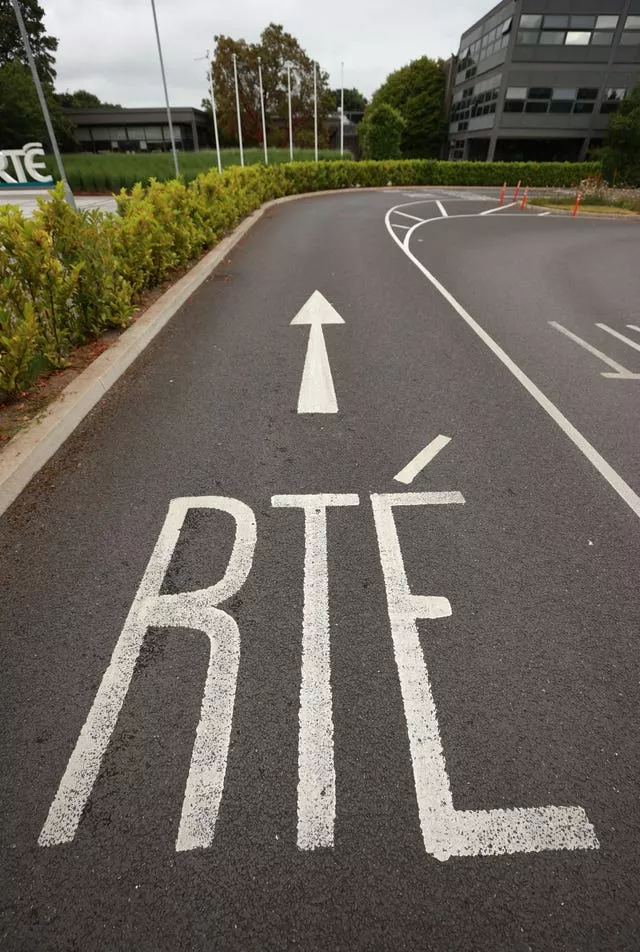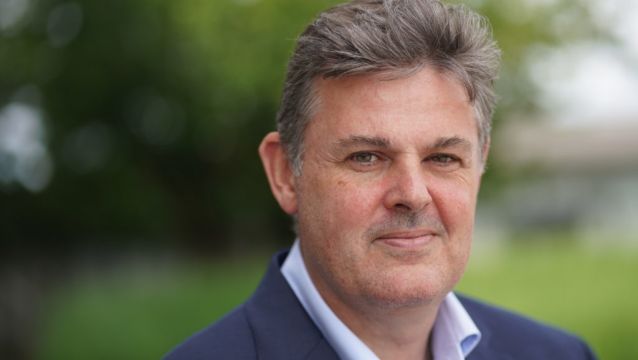RTÉ is re-examining the “phasing” of a scheme to cut hundreds of jobs at the broadcaster.
Station director-general Kevin Bakhurst said he remains confident the organisation can reduce its workforce by up to 20 per cent by 2028, but less-than-requested State funding has prompted a re-examination of the scheme.
Speaking to the PA news agency, he said: “Because the level of funding isn’t exactly what we asked for, we’re having to look at how we phase in the strategy.
“I’m confident we can deliver the strategy overall, but we need to look at the phasing of it.”
RTÉ is seeking a net reduction of about 400 posts through a combination of “normal attrition and retirements” and a €50 million voluntary exit scheme .
Asked what specific roles will be cut, Mr Bakhurst said: “In some areas, there will probably be fewer jobs than in other areas – but they will be across the organisation and at all levels.
“The thing is this will be over a five-year period and as the organisation changes, as some content is put outside in the independent sector, as we change what we’re doing for audiences – we need to do it strategically.”
Mr Bakhurst said no-one on the leadership team will be eligible to apply for the short-term redundancy scheme operating this year.
It will operate on the same terms as previous schemes, which were dependent on length of service but capped at two years’ salary.
“The difference in this voluntary exit scheme and previous ones is that previous ones were simply to save money,” he said.
“This one is about changing the way we run the organisation. We are putting more out to the independent sector, we’re putting more of a focus on our digital products.
“The organisation will be different, it will be changed.

“As the organisation changes we need to make sure the people who leave the organisation are the right people that we can continue to do what we need to do but also refocus on some of that.”
RTÉ recently announced the appointment of new directors of video and audio, due to start in September.
It was the latest significant change at the top of the organisation following last year’s scandals and throughout Mr Bakhurst’s tenure.
Asked if the overall cost for the salaries of the leadership team had come down at the cash-strapped broadcaster, Mr Bakhurst said: “Look, I think the overall cost of salaries is probably comparable to what it was.
“I haven’t done a cent-for-cent analysis of it but I wanted to have the right members of the leadership team and recruit the right people.”
Mr Bakhurst also told of a recent case involving an individual at RTÉ whose potential exit package of around €400,000 had gone through the Workplace Relations Commission.
He said: “It hasn’t quite been finalised yet, its gone through the WRC and there’s still one or two other issues to tie up – but it will be settled shortly.”

The reform strategy for RTÉ also involves consolidating its Dublin headquarters into a reduced footprint, including shifting production of the in-house Fair City soap out of Donnybrook.
However, Mr Bakhurst said the details have yet to be finalised: “It may be done by an independent, it may be done by a hybrid model – so those are sort of things we need to look at.”
Asked if he believed his popularity with staff had waned following the announcement of cutbacks, Mr Bakhurst said: “I don’t know if it’s waned. Inevitably when you do these jobs, you know you have to make some tough decisions.
“All I can do is I can explain them, I’m open to talking to people and listening to people.
“But yeah, I mean obviously, when you’re going for a period of significant change, some of the decisions are going to be less popular than others.
“But in the end, you have to do the right thing and do it in the right way.”







